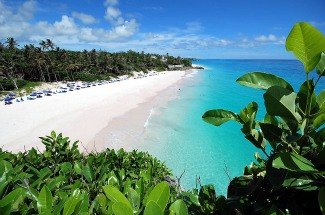If you’re reading this in November in Britain, take a moment to look out of the window.
Right in front of you is your first reason for buying in Barbados. Today on the island they’re sliding into the prime Caribbean season, with basking sun, low humidity and balmy warmth.
A perfect time, then, to indulge in some house hunting on the island. And the good news is that once you’ve found the right property, the legal process and financial aspects are not particularly onerous.
IF YOU’RE BUYING
- Anyone can buy property in Barbados; there are no restrictions, but if you’re a foreign national you need to get the permission of the Central Bank of Barbados. This is a formality.
- Your vendor pays a property transfer tax and the stamp duty. See below.
You can raise finance in Barbados as a non-national. But if you choose to bring the finance with you, it must be registered with the Central Bank. - For legal conveyancing of 'unregistered' land (which most is) you pay legal fees on a sliding scale:
Up to BDS $25,000 BDS*: $1,000
On the next BDS $75,000: 2.5%
On the next BDS $100,000: 1.5%
On the next BDS $300,000: 1.25%
Amounts above this threshold: 1%
Further fees will be payable if you’re borrowing for the purchase, based on the loan amount. - You should also budget for an annual land tax. Rates range from 0%-0.75% of the value of the property. The tax has a ceiling of BDS $60,000.
* As at 2 November 2015, £1 = $3.09 Barbadian dollars
IF YOU’RE SELLING
- The seller pays a stamp duty of 1%.
- The seller pays a transfer tax of 2.5% for sales above BDS $50,000, or $150,000 if a building is part of the sale.
- To avoid both these taxes, many non-resident purchasers establish an offshore company to buy and own the asset. This also avoids any issues with withdrawing 100% of sales proceeds at once.
TAXATION
- There are rules on repatriating the proceeds of property sales from Barbados. As things stand, you may withdraw the original purchase price, and a gain of 4-8%. Any further profit can only be taken at the rate $100,000 a year, although the Central Bank may exercise some discretion for senior citizens and emergencies.
- There is no capital gains tax for non-nationals.
- You may also leave your property to whoever you choose; there are no succession laws for non-nationals.
Please note: This article reflects Aylesford’s current understanding of property legislation in Barbados as at November 2015. It is offered for general guidance only; specialist legal and tax advice should always be taken for any property transaction.
Explore all Aylesford's Caribbean properties here
